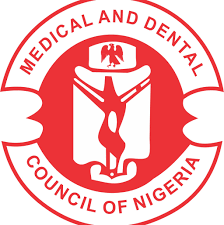To stem the skyrocketing cost of essential medicines in the interim, pharmaceutical industry players yesterday demanded special priority to access FOREX at rates that will moderate the final cost of medicines and other strategic healthcare commodities of critical need in the country.
They also urged the Federal government to create an N600 billion Pharmaceutical Manufacturing Development Fund at 5 percent interest, over a minimum of seven to 10-year tenure to support the local production of Active Pharmaceutical Ingredients, APIs, vaccines, critical supply chain interventions, and Research & Development (R&D), among others.
Making the demands in Lagos during a Consultative meeting with the Coordinating Minister of Health and Social Welfare, Dr Ali Pate, they lamented that the Nigerian Pharmaceutical industry is heavily Import-dependent as most of the production inputs and finished pharmaceutical products are imported, which only means that the final pricing of the finished product depends on the Foreign Exchange, FOREX, rate.
Presenting their demands before the Minister, the President of the Federation of Nigerian Pharmaceutical Industry Associations, FeNPIA, Dr. Okey Akpa explained that the fund would help to strengthen the local pharmaceutical industry and reduce the high cost of drugs, thereby making drugs available, accessible and affordable for all Nigerians.
Akpa stated that presently, most local pharmaceutical companies in Nigeria import APIs to produce their drugs, adding that the fund will be channeled into bioequivalence studies, World Health Organization, WHO, prequalification, Pharma manufacturing value chain, and regulatory development.
“These funds will also fast-track Nigeria into becoming a natural hub for the pharma industry in Africa, with benefits ranging from healthcare to FOREX earnings and contribution to GDP and employment,” the president added.
Akpa who identified some challenges that inhibit the expected growth in the pharma industry, said the importation of drugs and raw materials has remained a major challenge.
He called for a coordinated and strategic procurement process which could be by way of pooled procurement or public–private partnership in the medicine supply chain, as is being practiced currently between some states and members of the pharmaceutical Industry.
“There is a need to foster strong collaboration between the National Health Insurance Authority, local manufacturers, and overseas pharmaceutical distributors/importers to achieve Universal Health Coverage in line with the NHIA Act 2022,” he suggested.
With pharmaceutical machinery, equipment, and accessories attracting 5 percent to as high as 25 percent in some cases, Akpa proposed a zero percent duty rate for local manufacturers on pharma machinery, equipment, and accessories, to drive the growth of the industry.
”Based on extant fiscal Policy, raw materials for pharmaceutical products are to be VAT free and this should be sustained as against the recent push by the Nigeria Customs Service (NCS) to introduce VAT to some Pharmaceutical raw materials and even some Finished Pharmaceutical Products. The high tariff on some pharmaceutical manufacturing inputs needs to be urgently reviewed downwards as this will help further reduce the cost of drugs,” he added.
Speaking, former minister of Health, Prince Julius Adelusi-Adeluyi, added, “As we look forward to a pharmaceutical industry that will make drugs available, accessible, and affordable, I appeal to the federal government to encourage the players in the industry by addressing these challenges highlighted so far, review obsolete laws that are hindering the growth of the industry and invest in R&D, among others.”
Responding to their demands, Coordinating Minister of Health and Social Welfare, Prof. Muhammad Ali Pate, said the President is putting everything in place to ensure that the pharmaceutical industry thrives and that Nigeria has affordable and safe commodities to improve the health of the population of this country.
“We have listened to players in the industry on what needs to be done and the president has directed the attorney general to develop an executive order. Nigerians should be assured that President Tinubu is listening; he is concerned about the issues that affect their welfare. We already appropriate resources for the procurement of critical medicines that will bring succor to the poorest and most vulnerable Nigerians,” Pate assured.
On the high cost of drugs, the minister asserted that the cost of pharmaceutical products has skyrocketed in the last few months, globally, because there is a shortage of APIs, adding, “As the western world is struggling to resolve their issues, we too are putting in place mechanisms to procure and also engage with the local manufacturers, so that we can begin to provide solutions.”
On exits of pharmaceutical companies, Pate assured that Nigeria has a very vibrant local pharmaceutical manufacturing industry, and that, many foreign pharmaceutical companies have shown interest in entering the Nigerian market.
“In the last three months, at least, three major players are exploring the opportunities to come and manufacture in Nigeria. We do hope that many others will follow suit. Our local industry will thrive. It is not easy at this point, but we are very confident, that the industry will be able to weather the difficulties of today.”
On the issue of VAT on raw materials and imported products, the minister said, “We have a listening government and we are taking actions to see how we can reduce the burden. Our objective is to have our local manufacturers thrive.”




